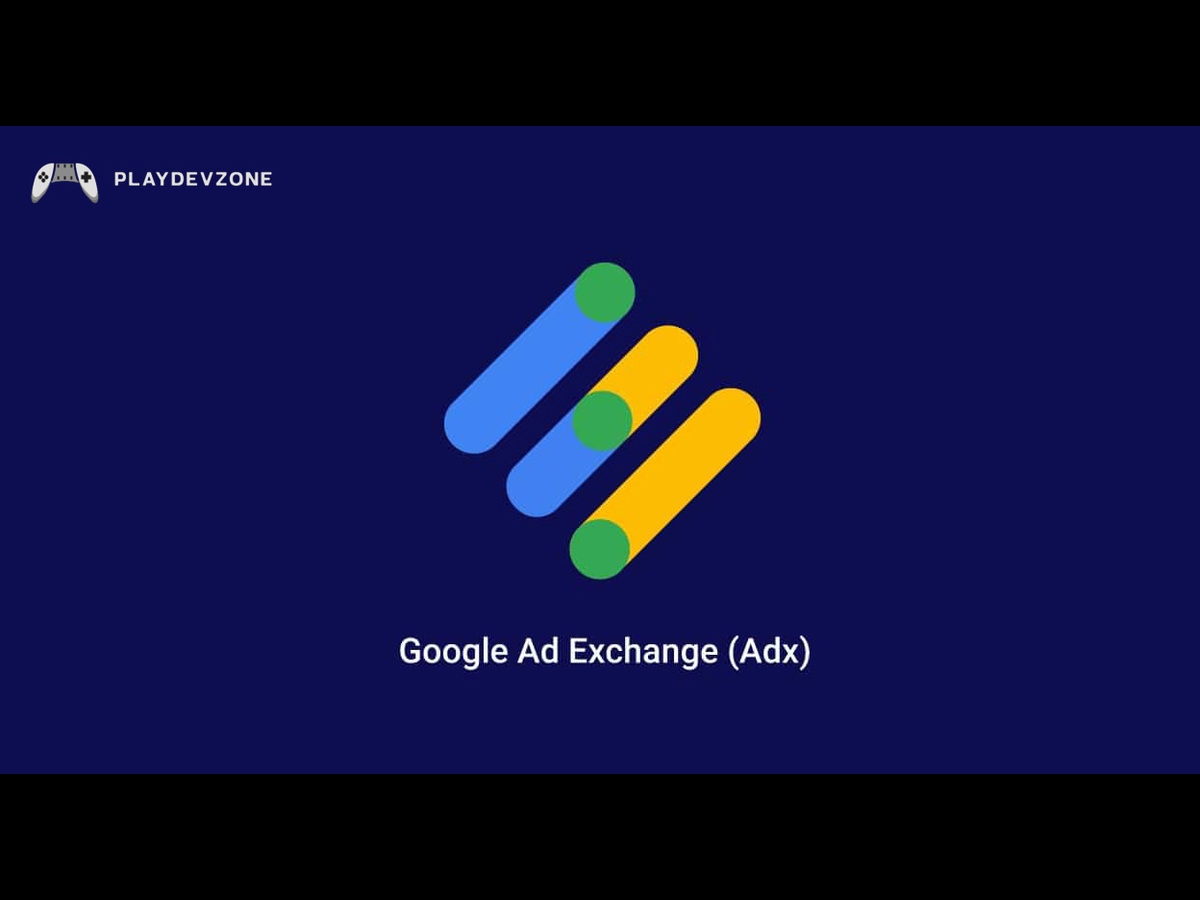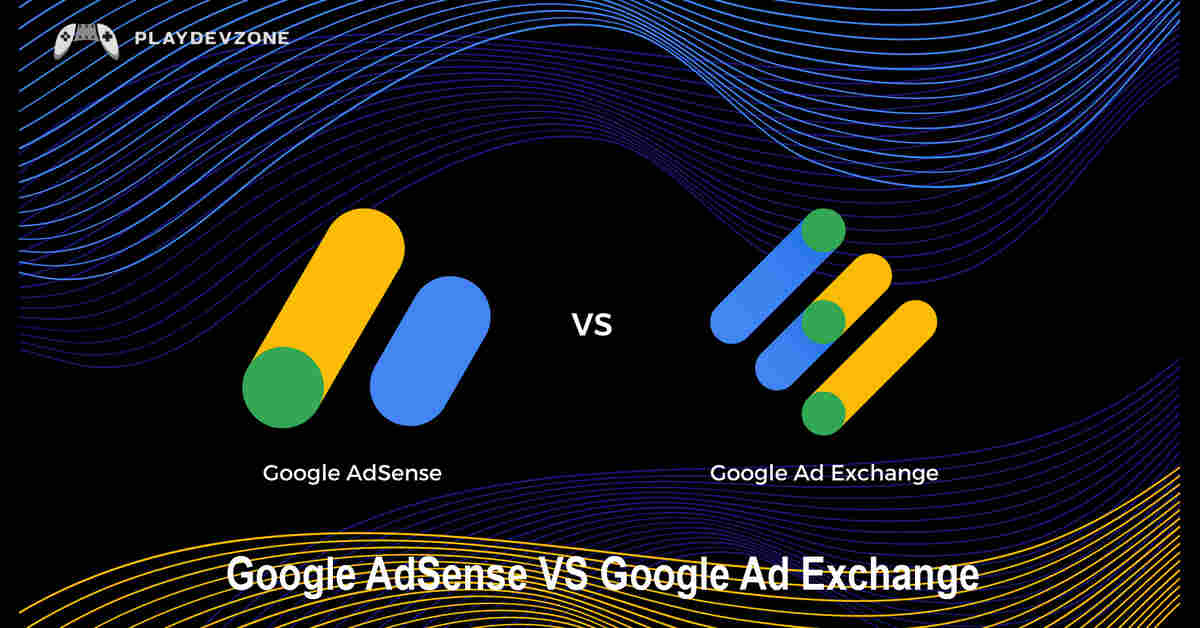Introduction
Are you struggling to decide between Google AdSense and Google Ad Exchange for your website monetization strategy?
You’re not alone! Google backs both platforms and promises high-quality ads and better revenue, but they work differently ( Google AdSense vs Google Ad Exchange ).
While AdSense is perfect for beginners looking for simple ad placements and quick approvals, Ad Exchange (AdX) caters to publishers ready to scale with premium advertisers, real-time bidding, and higher earning potential.

In this article, we’ll break down the key differences between Google AdSense and Google Ad Exchange, reveal which one fits your website’s growth stage, and share expert insights to help you choose the right monetization tool that maximizes your ad revenue.
Whether you’re a blogger, media site owner, or digital publisher, this guide will help you make a more intelligent, more profitable choice.
What Is Google AdSense? (For Beginners & Small Publishers)
Google AdSense is one of the most popular and beginner-friendly ways to monetize your website.
Publishers can easily display targeted ads on their blogs or web pages and earn money whenever visitors view or click those ads ( Google AdSense vs Google Ad Exchange ).
Designed for small publishers and new bloggers, AdSense offers a simple setup, automatic ad placement, and access to millions of advertisers through Google’s vast network.
You don’t need coding skills or direct advertiser relationships. Google handles it all.
Whether you run a personal blog or a niche website, Google AdSense helps you turn your traffic into steady income while keeping your user experience clean and professional.
What Is Google Ad Exchange (AdX)? (For Advanced Publishers)
Google Ad Exchange (AdX) is a premium advertising platform for advanced publishers and large media websites looking to maximize ad revenue.
Unlike AdSense, which connects you to basic ad placements, AdX gives publishers access to real-time bidding (RTB), premium advertisers, and greater control over how ads appear on their site ( Google AdSense vs Google Ad Exchange ).
With Google Ad Exchange, you can set pricing rules, manage direct deals, and optimize yield for every impression.
It’s ideal for high-traffic websites that want to scale their monetization strategy and attract top-tier brands.
If you’re ready to go beyond basic ad networks, Google Ad Exchange offers the tools and insights to take your earnings to the next level.
Pros and Cons: Which Platform Delivers More Value?
When comparing Google AdSense vs Google Ad Exchange, understanding the pros and cons of each platform helps you choose the best monetization tool for your goals.
Google AdSense stands out for its simplicity, easy setup, and accessibility, perfect for small publishers and beginners ( Google AdSense vs Google Ad Exchange ).
However, it offers limited control and lower revenue potential. On the other hand, Google Ad Exchange (AdX) provides advanced features like real-time bidding, premium advertisers, and higher CPMs, making it ideal for established publishers.
Yet, it requires higher traffic and stricter eligibility. The real value depends on your website’s size and strategy. AdSense is great for starting, while AdX empowers you to scale and unlock premium earning opportunities.
How to Choose the Right Monetization Tool for Your Website
Choosing the right monetization tool for your website depends on your traffic volume, audience type, and long-term growth goals.
If you’re a beginner or a small publisher, Google AdSense is the perfect starting point. It’s simple to set up, requires minimal management, and helps you earn a steady income through targeted ads.
However, if your website attracts high traffic and you want more control, transparency, and premium ad partnerships, Google Ad Exchange (AdX) is the more intelligent choice ( Google AdSense vs Google Ad Exchange ).
It allows you to manage direct deals, optimize pricing, and boost ad revenue.
The key is to match your platform to your website’s maturity level. Start with AdSense, then scale to AdX when ready to maximize profit potential.
Real-World Case Studies (Optional but Powerful)
When comparing Google AdSense vs Google Ad Exchange, nothing illustrates the difference better than real-world case studies.
For example, a small lifestyle blogger using Google AdSense earned consistent income through easy ad placements and automatic optimization, perfect for managing limited traffic.
In contrast, a large news publisher that upgraded to Google Ad Exchange (AdX) saw a 40% increase in revenue by leveraging premium advertisers and real-time bidding.
These success stories show that choosing the right monetization tool isn’t about size alone, but strategy and readiness ( Google AdSense vs Google Ad Exchange ).
Whether you’re just starting or scaling globally, studying real examples helps you understand how to apply these insights and pick the platform that delivers the best long-term value for your website.
Final Verdict: Which One Should You Choose?
Regarding Google AdSense vs Google Ad Exchange, the right choice depends on your website’s current stage and growth vision.
Google AdSense is perfect for beginners and small publishers who want a simple, hands-off way to earn from their content without technical expertise ( Google AdSense vs Google Ad Exchange ).
It’s easy to use, reliable, and great for a steady income. However, if your site attracts significant traffic and you’re ready to work with premium advertisers and maximize your CPMs, Google Ad Exchange (AdX) is the more brilliant move.
AdX offers more control, advanced analytics, and higher revenue opportunities.
In short, start with AdSense to learn the basics, then upgrade to AdX when your website is ready to scale and unlock its full monetization potential.
FAQ (Frequently Asked Questions)
What is the difference between Google Ad Exchange and AdSense?
The main difference between Google Ad Exchange (AdX) and Google AdSense lies in their target users, features, and earning potential.
Google AdSense is ideal for small publishers and beginners. It’s easy to set up, automatically places ads, and pays per click or impression.
In contrast, Google Ad Exchange is built for advanced publishers with high traffic, offering real-time bidding (RTB), premium advertisers, and greater control over ad inventory and pricing ( Google AdSense vs Google Ad Exchange ).
AdSense focuses on simplicity and accessibility, while AdX emphasizes performance, customization, and higher revenue opportunities.
In short, AdSense helps you start monetizing quickly, while AdX lets you scale your earnings with advanced tools and exclusive ad demand from top brands.
Which platform is best for monetization?
The best platform for monetization depends on your website’s traffic, audience, and growth goals.
For beginners and small publishers, Google AdSense is often the ideal choice. It’s simple to set up, requires no technical expertise, and starts generating income quickly through targeted ads ( Google AdSense vs Google Ad Exchange ).
On the other hand, Google Ad Exchange (AdX) is better suited for large publishers with high traffic who want premium ad placements, real-time bidding, and more control over pricing.
AdX can significantly increase revenue but has stricter eligibility requirements and management complexity ( Google AdSense vs Google Ad Exchange ).
In short, start with AdSense to build consistent earnings, and transition to AdX when your website is ready to maximize ad revenue and scale your monetization strategy.
What are the disadvantages of AdSense?
While Google AdSense is a popular way to monetize websites, it has several disadvantages.
Earnings can be unpredictable, especially for new sites with low traffic, making revenue unstable ( Google AdSense vs Google Ad Exchange ).
Ad placement rules are strict, and violations can lead to account suspension.
Users also face limited control over ad content, which may sometimes clash with your brand’s image.
Additionally, high click competition can reduce earnings, and some visitors may find ads intrusive, negatively impacting user experience.
Understanding these drawbacks helps website owners plan innovative monetization strategies while maintaining audience trust.
What pays more than AdSense?
If you want to earn more than Google AdSense, several alternatives can be more lucrative depending on your niche and traffic ( Google AdSense vs Google Ad Exchange ).
Affiliate marketing programs like Amazon Associates or ShareASale often pay higher commissions for targeted product recommendations.
Sponsored content and direct brand partnerships can offer flat fees or performance-based payments far above AdSense earnings.
Networks like Media.net, Ezoic, or AdThrive also provide competitive CPM rates, especially for high-traffic sites ( Google AdSense vs Google Ad Exchange ).
Diversifying your monetization strategy with premium ad placements, memberships, or digital products can maximize revenue while maintaining a positive user experience.
Choosing the right mix can transform your website from a modest income source into a profitable online business.
Conclusion
Choosing between Google AdSense and Google Ad Exchange comes down to your website’s traffic, niche, and revenue goals.
AdSense is ideal for beginners seeking a simple, reliable way to monetize, while Google Ad Exchange offers advanced targeting, higher CPMs, and premium advertiser access for high-traffic publishers ( Google AdSense vs Google Ad Exchange ).
Understanding the strengths and limitations of each platform ensures you maximize earnings without compromising user experience.
You can confidently select the right monetization tool to grow your online revenue by evaluating your audience, content strategy, and long-term goals.
Start smart, choose wisely, and let your website work harder for you!

